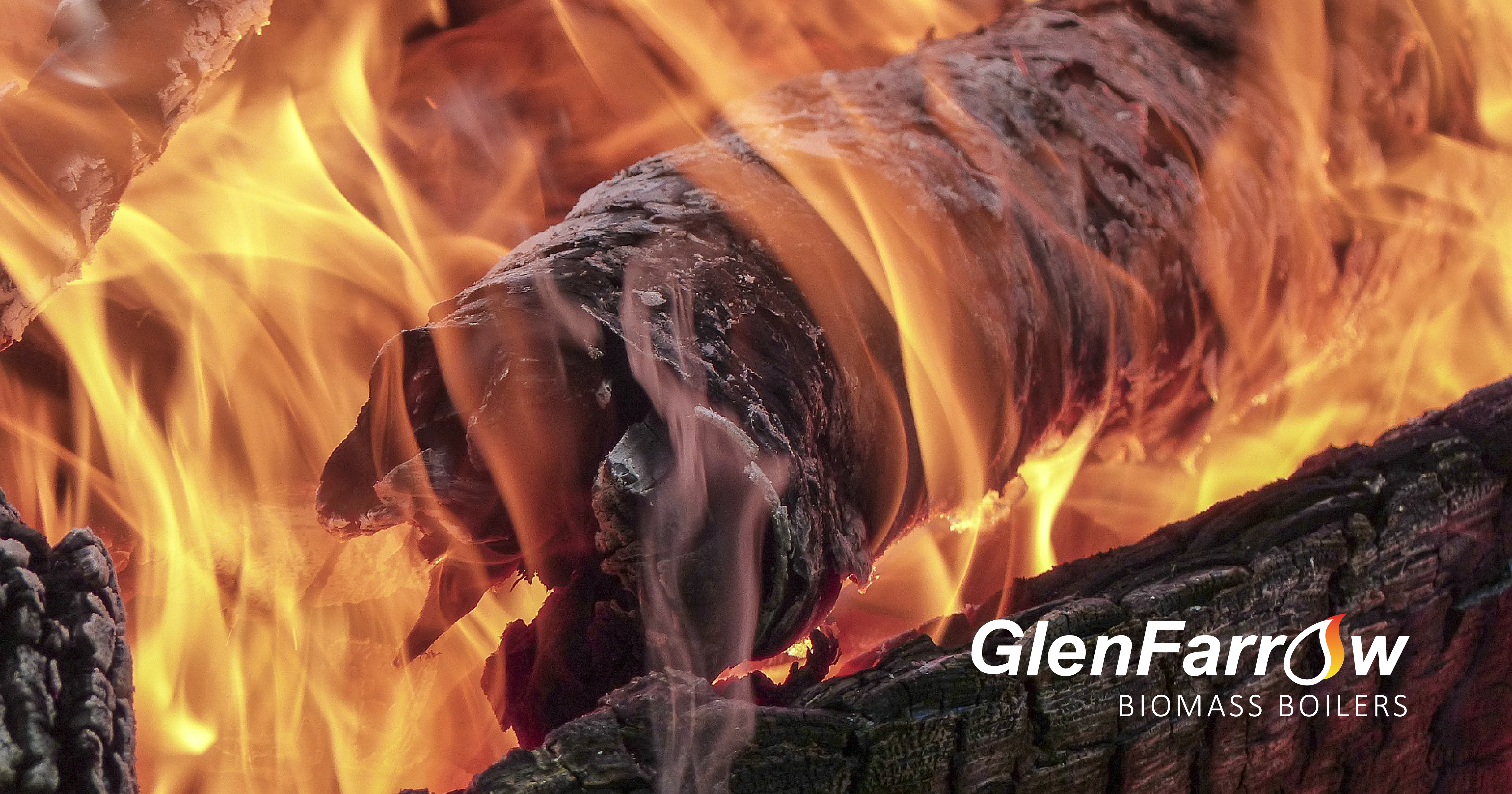
For your biomass boiler to work the most efficiently, you will need to make sure you are using the best fuel type. For example, if the fuel is too wet, irregular in size or of low quality, your fuel feed can get disrupted or the boiler will burn the fuel inefficiently.
In general, the most common fuel types for biomass boilers are wood chip, wood pellets and logs. However, some biomass boilers are designed specifically to burn straw, hay bales and waste wood.
Biomass wood pellets
Wood pellets are small in size and are frequently manufactured from wood by-products, such as saw millings and sawdust.
Advantages:
- Pellets are a high density, high heat output and a low moisture content fuel. This means that they are easy to store and can be transported efficiently.
- Pellets can be automatically fed into a biomass boiler through an attached hopper, removing the need of manual loading. This also means there will be a constant supply of heat to your premises.
- They are uniform in shape and size which helps minimise the chance of your fuel feed being disrupted.
- Depending on the appliance they are fuelling, they emit low emissions due to the standardisation of the fuel.
- Pellets are very small in volume for the equivalent heat output.
Disadvantages:
- When fuel has to be purchased in, rather than manufactured in house, wood pellets are the most expensive fuel type.
- Pellets are usually only considered for systems up to 200kW. This is due to their cost, delivery and supply constraints.
Wood chip
Wood chip is a very popular biomass fuel type, especially for automatic biomass systems. It is commonly used for boilers of medium to large size.
Advantages:
- Wood chip is much less complex to make as cord wood or waste wood is simply fed into specialised wood pallet chipper.
- Wood chip is fed automatically into biomass boilers, minimising the need for manual handling.
- Wood chip biomass boilers can be very efficient.
- Wood chip is standardised into two common sizes, G30 and G50. (Others are available – however they are less common).
Disadvantages:
- One tonne of wood chip can take up more than 2 cubic metres of space.
- As there are many types of equipment to chip wood, uniformity can sometimes become an issue with this fuel type – especially if cheap non-fuel grade chippers are used.
- Using incorrect sizes or too high of a moisture content, wood chip can cause issues with the fuel feed system on your biomass boiler and inefficiency in the combustion cycle.
Wood logs
Wood logs are the most readily available biomass fuel type.
Advantages:
- Minimal processing is required and bulk loads of logs are very easy to transport.
- If you have a free supply of wood at your business, log fuel is the most cost effective fuel type as there is very little requirement for machinery to process wood.
- Logs can usually be sourced cheaply, especially awkward or undesirable waste.
Disadvantages:
- Logs usually have a long drying period before they can burn efficiently.
- Logs usually cannot be automatically fed into the boiler, they need to be manually fed into a batch fed biomass boiler.
- Logs can be awkward to handle due to their shape and size.
Straw
Advantages:
- Straw can be very cheap and even a by-product in some cases
- Large amounts of baled straw can be loaded at once
Disadvantages:
- Large machinery is required to handle baed straw.
- Straw has a low calorific value when compared to wood
(Calorific value: the amount of heat per given volume of fuel)
They type of fuel you use for your boiler is mainly dependent on the type of biomass system your business has. Therefore, it is always best to discuss with the manufacturer about the best fuel types and also consult with your applicable RHI air quality certificate, to check which fuels can be utilised in your biomass boiler to be RHI compliant.
If your business does not have a free supply for woods, you will have to source the logs elsewhere. The BSL supplier list allows you to search for suppliers in your area: https://biomass-suppliers-list.service.gov.uk/).
Our team at GlenFarrow are happy to advise on the best fuel types for your biomass boilers and chippers. If you would like more information contact us on 01775 722327.